Recently I got a reader request for a post about eating healthy on a budget, specifically including tips for grocery shopping. Lots of bloggers have written posts about this topic but I thought it might be fun to do one of my own!
So here we go:
1. Plan, plan, plan.
-Never go to the grocery store without a list….and stick to that list! (My hubby made me a checklist that lists foods by aisle. I can circle what I need and makes it really easy to make sure you don’t miss anything on your list when you’re in the store!)
-Plan menus that use ingredients more than once so things don’t go to waste.
-Use grocery store ads to plan your meals around what’s on sale
-Use coupons, but only if they’re for things you would normally buy. There’s no sense in getting $1 off Swiss cheese if you don’t even like Swiss cheese. In the end you won’t be saving money because you’ll probably end up throwing those things away
-Same thing goes for 10 for $10 sales, don’t buy something just because it’s included in the sale if you’re not going to eat it!
-Realize that most coupons are for processed foods, which you should try to limit in your diet.
-Be realistic. Most people will always have some amount of processed food in their diet. Focus on choosing wisely for the ones you do include.
-Never grocery shop hungry. It leads to more impulse purchases!
2. Keep a well-stocked pantry
-See the post I wrote about my pantry staples for some ideas to get you started. It will be an expensive one-time investment and then it’s pretty easy to keep stocked by just replacing things one at a time as you run out
-Know what you have on hand. Don’t buy tomato sauce every time you go to the store if you already have 6 jars in your pantry.
-Keep a running list of things you run out of throughout the week so you don’t forget anything.
3. Shop in season
-Shop your local farmer’s markets in the summer and plan your menus around the things you find there.
-Grow your own vegetable garden. Seed packets are cheap and with a little planning, you can have fresh herbs and produce several months a year for a very low cost.
-Buy what’s in season. (Here’s a great list by state) Don’t try to buy strawberries in January if they’re not in season where you live. Instead, go strawberry picking in June and stock your freezer so that you can enjoy berries on the cheap all year round.
– Check out the frozen section for fruits and vegetables. The produce is usually flash frozen at its peak and therefore can be just as beneficial nutrition-wise as fresh produce.
4. Only buy organic when it matters.
-Memorize the Dirty Dozen and the Clean Fifteen (Check out my friend Jenn’s post for a great visual guide!) . In other words, don’t waste your money on organic sweet potatoes. As for meat and milk, do your own research and decide if it’s something you feel strongly enough about to spend the money on.
5. Unit cost/Buying in bulk
-I cannot stress this enough. I look at the unit cost of every single thing I buy, especially things like spices, peanut butter and chips. The price may seem higher at the time, but it will save you money in the long run.
-On the other hand, don’t buy something in bulk just to save money if you can’t eat it or freeze it before it’s going to spoil.
-Buy and cook a whole chicken. It’s way cheaper than just buying the breasts or legs, and then you can use the bones to make stock. All it requires is a little extra time cutting.
6. Make your own
-There are TONS of things you can make at home that require very little effort and yield products that are similar to and often better than store bought (Read cheaper and healthier). Some examples: hummus, tomato sauce, crackers, bread, pizza crust, trail mix, granola, bagels, broth, lean pockets….
7. Eat less meat and more beans and other legumes
-Meat is expensive. For the most part, grains, beans and legumes are not. Buy bags of dried beans, peas, lentils, rice, quinoa, barley and cook them yourself. Most require no more than a hour of soaking before cooking, if any at all.
-Cook a whole bag of black beans at once. Portion them into Ziploc bags and store them in the freezer. When you’re ready to use them, just pull some out and defrost them n the microwave or add them directly to whatever dish you’re making.
8. Know your portion sizes
-If you’re eating 6 ounces of meat at every meal, of course you’re going to spend more money than you should at the grocery store. Learn to eat correct portion sizes and your food will last longer. (Click here to see portion sizes in pictures with everyday objects).
-Fill your plate the right way.
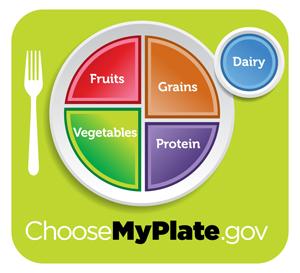 9. Just drink water
9. Just drink water
-Don’t waste your money on soda, juice and sports drinks. They’re fine to have occasionally, but if you don’t buy them every time you shop, you will save money. If you have a hard time drinking plain water, add citrus fruits or frozen (unsweetened) berries to a pitcher of water for a twist of flavor.
10. Limit processed foods
-Packaged foods are notoriously overpriced. They’re also filled with stuff you don’t need in your body. Stick with fresh, natural foods that you can combine yourself into tasty meals, rather than buying pre-packaged meals filled with who knows what.
11. Read the labels. I buy Kashi 7 grain crackers instead of Wheat Thins. Are they more expensive? Yes. Are they better for me? Yes. They have less sodium and sugar and more fiber and protein. Is that worth the extra money to me? Yes.

12. Stock up when things are on sale. Check the expiration dates and the amount of space in your freezer and then buy several when things go on sale. This can save you a lot of money, especially on things like meat, as long as you have a place to store it!
13. Consider store brand products.
I’ll be the first to admit that there are definitely some things that I refuse to buy store brand. However, for the most part, store brand products have the exact same ingredients as name brand and can usually be found at a MUCH lower price! Just remember to check the nutrition facts and compare between brands as usual.
So there you have it. Eating healthy on a budget can be a challenge, but with a little effort it can be done.
Some other posts that may be of interest:
Cutting Down our Grocery Bill from The Avid Appetite
Grocery Budget from Yes I Want Cake
Saving on Groceries from Faith, Fitness, Fun
Getting it Under Control from AliGirl Cooks
Eat Well, Spend Less from GoodLife Eats
Any other tips that I might have missed?!
Enjoy!
–Lindsay–
Get my free Table Talk email series where I share bite-sized nutrition information about carbs, protein, and fat, plus bonus information about snacks and sugar!





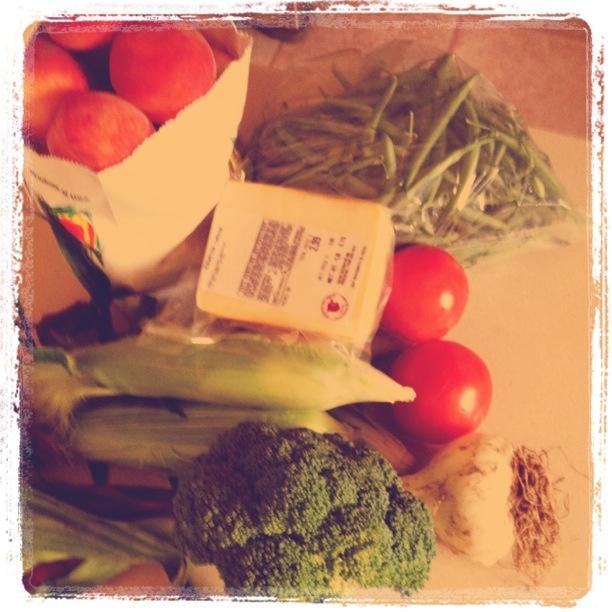


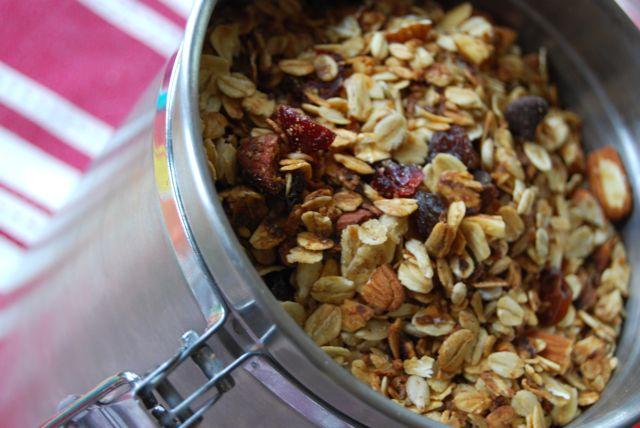
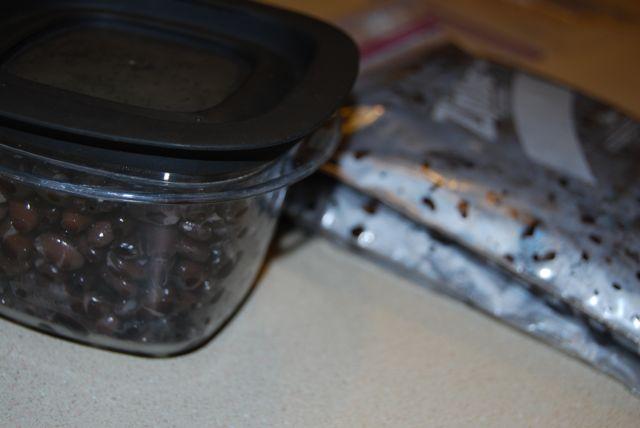



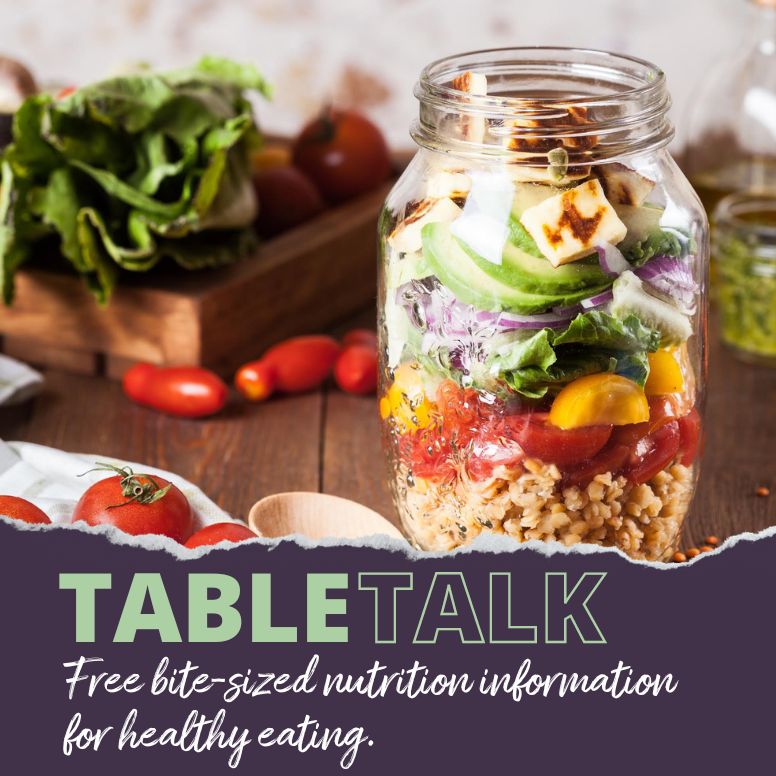
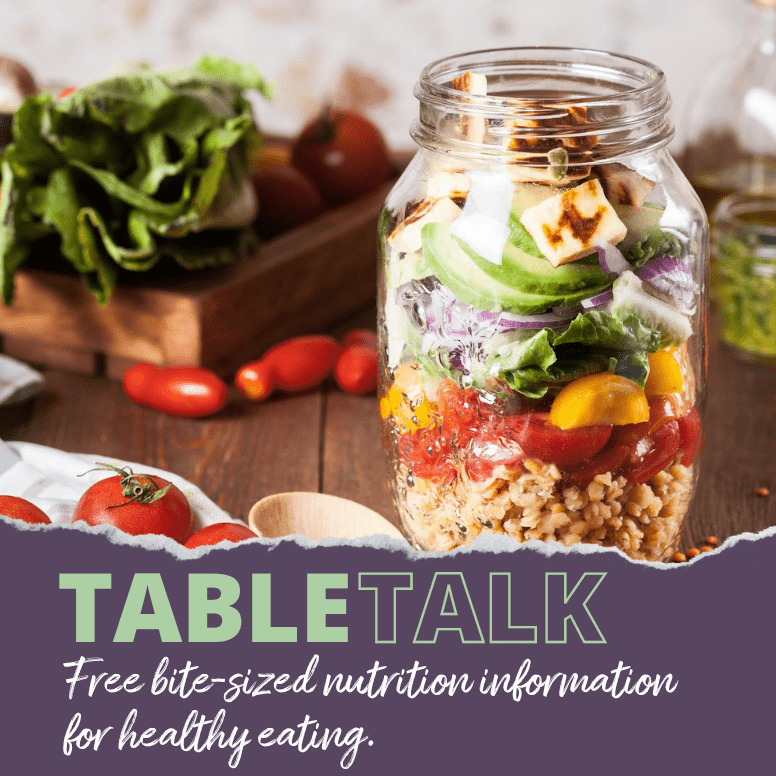
Thanks for linking up my post! I’m always trying to save money at the store! It’s hard to feed a big man for cheap but I think I’ve finally figured it out 🙂
I think you included everything, this is a fantastic list. I do most of it too:-) My big hang-up is coupons….I don’t eat processed foods, so most coupons are not for me…. BUT I try to find some, and go to farmers markets, and in store sales are really great too:-) Oh, at our store in Charlotte, the buy 10 for $10, you can get two and still get them at that 10 for 10 price, which is so helpful:-)
Thank you,
Take care,
Terra
Thank you for the link back friend 🙂 I agree with all of these tips and they are so helpful! I love growing my own herbs (even on my little urban terrace) – it saves SO much money and has a major impact on flavor while keeping things healthy!
GREAT post! I have such a tough time sticking to a budget in the grocery store….its the one area where I let myself go a bit nutty! I definitely try to buy in season and grab deals when I can. I also prefer making my own granola, bars & sometimes even breads! Hope you’re having a great weekend
Great tips. I love the idea of making a grocery list based on the isles in the store. I can certainly see where it would save me a lot of time as I always end up doubling back at least 3 or 4 times.
Super helpful & great tips btw, love this post! I get a lot of questions about eating healthy on a budget & these tips are very practical!
Love it! I have been mulling over a similar post, but I’m pretty sure you covered everything I would have said.
I guess now I can write one that isn’t as straightforward and instead more comically inspired? 🙂